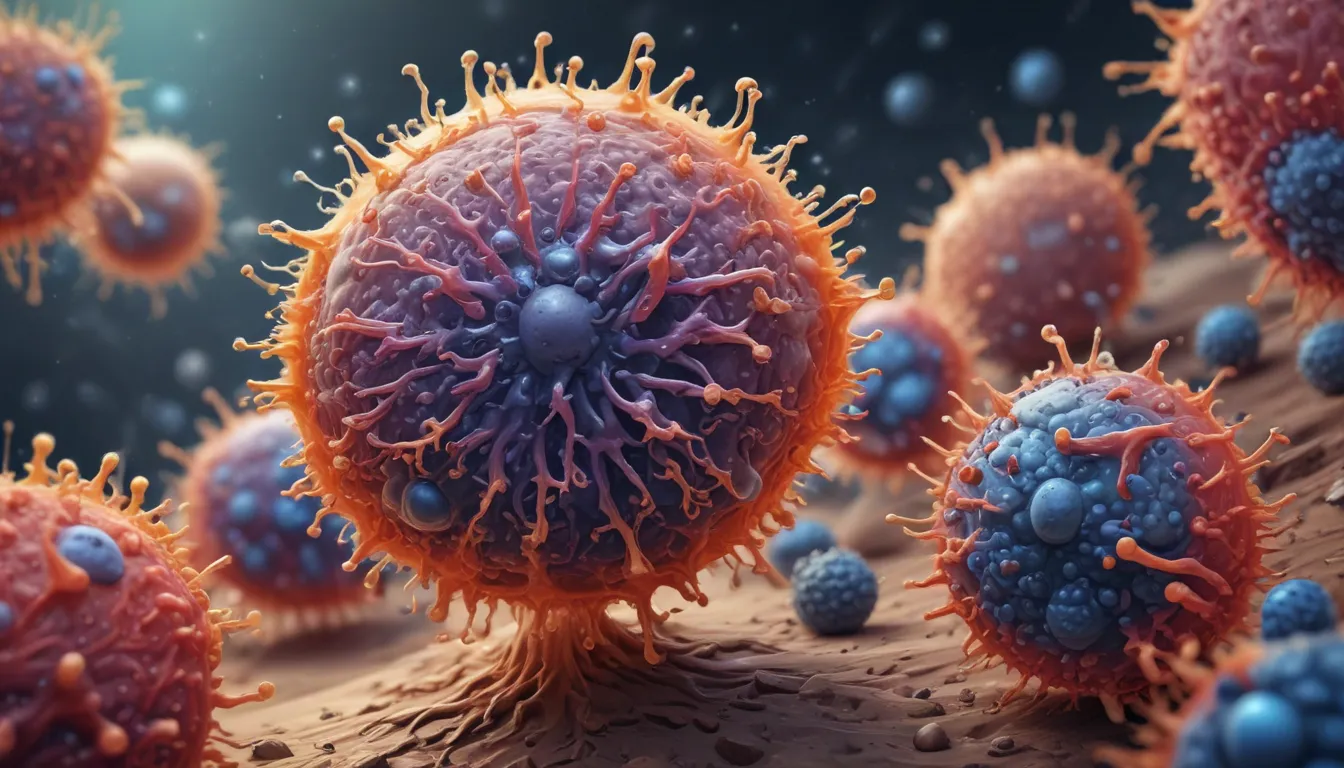A Note About Images: The images used in our articles are for illustration purposes only and may not exactly match the content. They are meant to engage readers, but the text should be relied upon for accurate information.
Welcome to the fascinating realm of T lymphocytes, the unsung heroes of our immune system! These incredible cells, also known as T cells, are instrumental in protecting our bodies from harmful invaders and maintaining our overall health. Join us as we dive into 18 unbelievable facts about T lymphocytes that will not only spark your curiosity but also deepen your understanding of their vital role in safeguarding our well-being.
The Marvels of T Lymphocytes
T lymphocytes, or T cells, are the powerhouse of our immune system, possessing unique characteristics that set them apart from other immune cells. These cells exhibit memory, diversity, and longevity, making them indispensable in fighting infections and supporting our immune defenses. With their remarkable versatility and potential for medical advancements, T lymphocytes are truly the unsung champions of our health.
The Intriguing Facts Unveiled
1. Key Players in Immune Defense
T lymphocytes are essential components of the immune system, responsible for recognizing specific foreign antigens and orchestrating immune responses to combat them effectively.
2. Origins in the Thymus Gland
Derived from the thymus gland, located in the chest near the heart, T lymphocytes undergo maturation and acquire their unique antigen receptor repertoire, setting the stage for their critical role in immune defense.
3. Diverse Functions
From directly killing infected cells to activating other immune cells and regulating immune responses, T lymphocytes exhibit a myriad of functions crucial for both cell-mediated and humoral immune responses.
4. Antigen Recognition through TCRs
T lymphocytes recognize specific antigens through their T cell receptors (TCRs), enabling them to identify a wide range of foreign substances, including viruses, bacteria, and cancer cells.
5. Differentiation into Distinct Subsets
Upon activation, T lymphocytes differentiate into helper T cells and cytotoxic T cells, each performing specific roles in coordinating immune responses and eliminating infected or abnormal cells.
6. Memory of Previous Infections
One of the most astounding features of T lymphocytes is their ability to remember previous encounters with specific antigens, allowing for a rapid and potent immune response upon re-exposure to the same pathogen.
7. Involvement in Autoimmune Diseases
T lymphocytes can sometimes mistakenly target healthy cells and tissues, leading to autoimmune disorders such as rheumatoid arthritis, multiple sclerosis, and type 1 diabetes.
8. Interaction with Antigen-Presenting Cells
T lymphocytes interact with antigen-presenting cells (APCs) like dendritic cells and macrophages, essential for activating T cells and initiating immune responses against specific antigens.
9. Expression of Cell Surface Markers
Specific cell surface markers such as CD4 and CD8 help distinguish between helper T cells and cytotoxic T cells, aiding in the identification of different T cell subsets.
10. Development Requires Signals from Other Cells
Signals from thymic epithelial cells and dendritic cells are crucial for the development and maturation of T lymphocytes, shaping their repertoire and ensuring optimal immune function.
11. Long-Term Persistence
T lymphocytes exhibit remarkable longevity, with memory T cells capable of surviving for decades and providing lasting immunity against previously encountered pathogens.
12. Activation of B Cells
T cells play a pivotal role in activating B cells, essential for antibody production and mounting an effective immune response against pathogens through collaborative efforts.
13. Induction of Immunological Tolerance
T regulatory cells (Tregs), a subset of T lymphocytes, can suppress immune responses and promote tolerance, preventing excessive reactions against self-antigens and maintaining immune balance.
14. Differentiation Pathways
T cells have the ability to differentiate into various effector subsets like Th1 cells, Th2 cells, Th17 cells, and regulatory T cells, each contributing distinct functions to immune responses.
15. Providing Immune Surveillance
By continually patrolling tissues and lymphoid organs, T lymphocytes play a crucial role in detecting and eliminating infected or abnormal cells, ensuring the integrity of the immune system.
16. Engineering for Immunotherapy
Advancements in immunotherapy have enabled the engineering of T lymphocytes, such as CAR-T cell therapy, offering promising results in treating certain types of cancer by enhancing the body’s ability to combat malignant cells.
17. Role in Graft Rejection
During organ transplantation, T lymphocytes can recognize transplanted tissue as foreign, triggering an immune response that may lead to graft rejection, necessitating the use of immunosuppressive medications.
18. Essential for Vaccination Success
T lymphocytes are indispensable for the effectiveness of vaccinations, aiding in recognizing vaccine antigens and generating long-lasting immune memory for protection against future infections.
Conclusion: Celebrating the Wonders of T Lymphocytes
In conclusion, T lymphocytes, with their astounding abilities and indispensable roles in immune defense, stand as pillars of our health and well-being. From their formation in the thymus to their interactions with antigens and immune cells, T lymphocytes showcase a fascinating array of functions essential for our survival.
As we unravel the mysteries of T lymphocytes, we gain a deeper appreciation for the complexity and brilliance of our immune system. These tiny cells work tirelessly to keep us healthy and protected, paving the way for advancements in immunology and innovative therapeutic strategies on the horizon.
FAQs
-
What are T lymphocytes?
T lymphocytes, or T cells, are a type of white blood cell crucial for the immune system’s defense against infections and diseases. -
How are T lymphocytes formed?
T lymphocytes are formed in the bone marrow and undergo maturation in the thymus gland. -
What are the subsets of T lymphocytes and their functions?
Subsets of T lymphocytes include helper T cells, cytotoxic T cells, and regulatory T cells, each serving specific roles in immune responses. -
How do T lymphocytes recognize antigens?
T lymphocytes recognize antigens through T cell receptors (TCRs) that enable them to identify foreign substances presented by antigen-presenting cells (APCs). -
Are T lymphocytes involved in autoimmune diseases?
Yes, T lymphocytes can contribute to autoimmune diseases by targeting healthy cells and tissues in the body. -
Can T lymphocytes be used in cancer treatment?
Yes, T lymphocytes are harnessed in cancer immunotherapy to enhance the body’s ability to recognize and eliminate cancer cells, offering potential therapeutic benefits.
Unveil the wonders of T lymphocytes and embark on a journey through the captivating world of immunology, where the intricate mechanisms of our immune defenses come to life with astonishing clarity and fascination. As you delve deeper into the realm of T cells, let your curiosity guide you to new discoveries and insights that illuminate the brilliance of our immune system’s guardians. Embrace the marvels of T lymphocytes and witness the extraordinary capabilities that safeguard our health and well-being with unwavering dedication and resolve.





